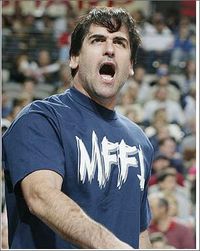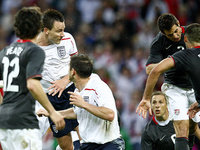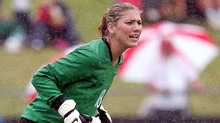Games
Replacing the Sports Page
When people build their own pages, you give them an icon, or icons, representing the local teams they are interested...
Read moreBlack Camelot
Rather than concern ourselves with the details of the re-staging (what might be added, or dropped, what might the costumes...
Read moreRevolt of the Sports Fans
When you're a football fan you can ignore the Bushies and all their machinations, for at least a few hours....
Read moreHow Far Has U.S. Soccer Come?
It's time to raise expectations, to get mad when the team performs badly, and to put pressure on our people...
Read moreDoes Politics Trump Everything?
It is this assumption, that everything and everyone must line up on one side or the other, and that the...
Read moreCoach Lilly
Make Lilly coach and she'll become a known star, rather than an unknown one. An accomplished, and respected womens' coach...
Read moreSome Chinese Accountability Please
If your actions show a willful disregard for human life, and those actions cause someone to die, you killed them....
Read moreThe Collapse of Local Media
Journalism has yet to replace its decrepit business model, and things are starting to fall through the cracks. As the...
Read moreThe Bowl Economy
College athletics is dieing. Bottom line. If it's not already dead. Someone needs to bring the corpse back to life,...
Read more

















